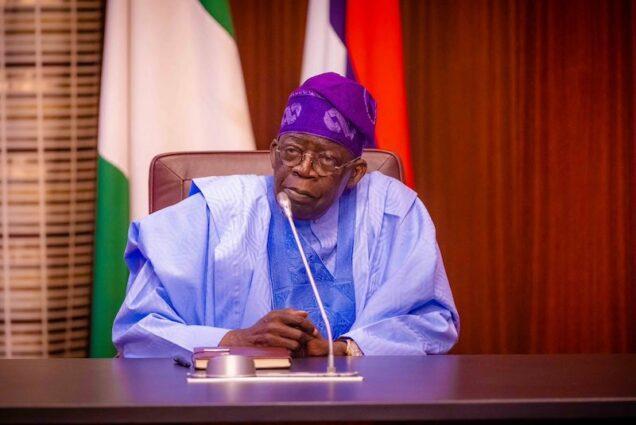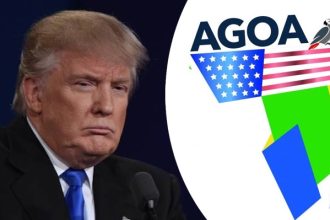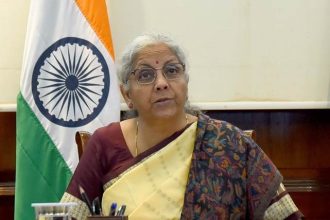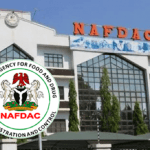- The Council also recommended the declaration of a state of emergency on revenue generation in the country.
President Bola Ahmed Tinubu’s economic advisers have proposed the merger of the Federal Inland Revenue Service (FIRS), Nigeria Customs Service (NCS), and the Nigerian Maritime Administration and Safety Agency (NIMASA) into the Nigerian Revenue Service (NRS).
The Policy Advisory Council noted that the merger would enable an efficient collection of all direct and indirect taxes, as well as levies on behalf of the Federal Government.
According to submissions by the National Economy Sub-Committee, the policy will be aided by the passage of an Emergency Economic Reform Bill which will grant President Bola Ahmed Tinubu (BAT) special powers to drive the economic reform agenda and support the delivery of sustainable and inclusive economic growth.
The council further outlined the removal of fuel subsidy, sale or concession of select government assets, transition to a transparent and unified foreign exchange rate system, deepening tax collection and optimization of operating expenditure to reduce cost, as targets to be pursued by the President towards the achievement of some milestones within the first 100 days in office.
Members of the Policy Advisory Council are Senator Tokunbo Abiru (chair), Dr Yemi Cardoso, Sumaila Zubairu and Dr Doris Anite.
The council’s report, which focuses on fiscal and monetary policies, industry, trade and capital market reforms, emphasised that changes in the Central Bank of Nigeria and temporary increases in fiscal circuit breakers such as debt limits would help achieve N1trn Gross Domestic Product growth and over 50 million jobs for citizens in eight years.
The 90-page document further proposed that reforms in the Central Bank of Nigeria (CBN) will help achieve about $50bn-$60bn in external reserves, with a monthly inflow of at least $6bn-$8bn from export earnings and other forms of capital inflow, to support the policy at an exchange rate of N500-N600/$.
“Ramp up production capacity to four million barrels from offshore and onshore assets within four years and grow crude oil revenue and savings into ECA and NSIA,” the advisory read.
“Formalise illegal refineries and encourage modular refineries to create economic opportunity for the host communities.
“Aggressively grow domestic refining capacity to 2 million barrels per day in the next 8 years, including modular refineries.
Other fiscal recommendations proposed include a policy directive that ensures proceeds from the sale of assets to settle existing FGN debt obligations.
“List shares of strategic and profitable NNPC subsidiaries. Privatise, concession or sell down FGN’s stake in corporate assets to partners and other investors (possibly with a buyback option) to generate liquidity in the short to medium terms (focus on sub-optimal assets e.g., NNPCL refineries).
“Leverage blockchain to create and provide access to a Government land registry and regionalise and concession the power transmission grid.”
President Tinubu’s Policy Advisory Council has also recommended the declaration of a state of emergency on revenue generation in the country.
Meanwhile, Tinubu on Thursday said the newly-inaugurated National Economic Council (NEC) has the mandate to support and deepen the FG’s efforts to cause rapid and inclusive economic growth in Nigeria.
Tinubu said this in a statement signed by the State House spokesperson, Abiodun Oladunjoye following the president’s inauguration of the NEC which is headed by the Vice President, H.E Kashim Shettima.
“I had the pleasure of inaugurating the National Economic Council (NEC) at the Presidential Villa,” the president stated.
“The important body, led by the Vice President, Senator Kashim Shettima, and with membership of all State Governors among others, has the mandate to support and deepen the administration’s efforts to cause rapid and inclusive economic growth through well-reasoned policies and measures.”
While addressing members of NEC at the presidential villa in Abuja, Tinubu asked the council to support his administration in transforming the economic fortunes of the country.
He said the task of growing the nation’s economy is enormous while he admonished the NEC members that there is “no excuse for failure”.
The president further said that the task of turning around Nigeria’s economy from the age-long status of “potential to pragmatic’’ had started with the removal of fuel subsidy and unification of exchange rates, urging the 36 state governors to join the fray.
Inaugurating the NEC, an advisory body comprising the 36 state Governors, CBN Governor and other stakeholders, Tinubu listed eight priority areas for urgent attention.
He also called for collective frameworks that will stimulate a buoyant economy that meets the needs of the poor and vulnerable.















